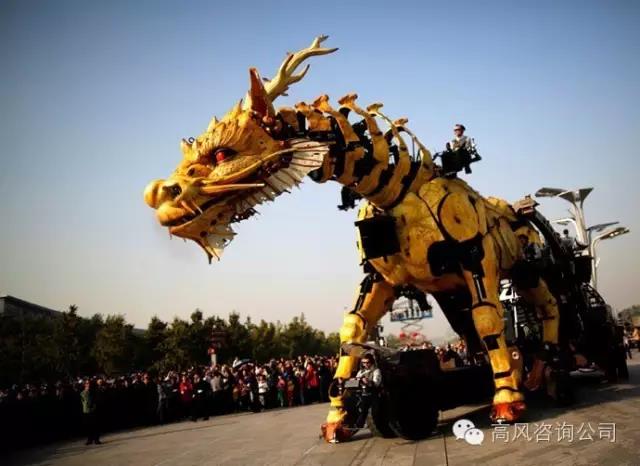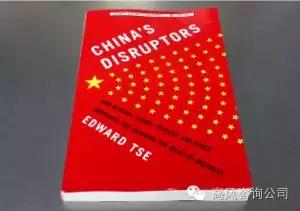
September 23, 2016 Mai Tao
Chinese whispers: The most populous nation on Earth wants to replace millions of human workers with industrial robots it plans to manufacture
Towards the end of last year, the nominally communist Chinese government announced that it wants China to become the world’s largest producer of industrial robots.
In comments made in the past few months, China’s President Xi Jinping and Premier Li Keqiang have clearly stated their intention to embrace robots and the new industrial revolution brought about by internet connectivity and artificial intelligence.
In a speech to the Chinese Academy of Sciences, Jinping called for a “robot revolution”, saying: “Our country will be the biggest market for robots, but can our technology and manufacturing capacity cope with the competition? Not only do we need to upgrade our robots, we also need to capture markets in many places.”
And speaking at the China Association for Science and Technology conference in Beijing, Keqiang said the conference will “spur the the growth of the emerging robot industry and create the world’s largest robot market”.
It was one of a series of statements Keqiang made about robots towards the end of last year. In another one, he said countries should open up markets and share robotic technology for mutual benefit, adding: “China, with a more open gesture, would like to welcome robot experts and entrepreneurs across the world to share knowledge and cooperate with us.”
Jinping, too, emphasises China’s willingness to co-operate with foreign companies on robotics research and development.
For Asia’s appetite
Since those comments were made by Keqiang and Jinping, data produced by the International Federation of Robotics suggest that China is now the world’s largest market for industrial robots.
IFR statistics indicate that Asia’s voracious appetite for industrial robots has made it the fastest-growing market in the world.
And, having purchased approximately 70,000 industrial robots in 2015, according to IFR estimates, China, the second-largest economy in the world, currently buys more industrial robots than any other country, surpassing the whole of Europe, which bought around 50,000.
Source: International Federation of Robotics
As well as the country’s leaders articulating their ambitious framework for making China the world’s largest robot manufacturer, the people charged with making it happen have put some numbers on the chart.
As reported by IFR, Wang Ruixiang, president of the China Machinery Industry Federation, says the country aims to increase annual sales of domestically produced industrial robots to 100,000 units by 2020.
And the China Robot Industry Alliance is promising to “vigorously promote” advanced manufacturing technology and robots.
Enter the dragon
While China’s leaders might be dreaming of leading their country to global dominance in robot manufacturing, the reality is that the most advanced scientific knowledge and technological expertise currently resides outside the country.
Ever since Keqiang and Jinping made their overtures, globally pre-eminent robot manufacturers have made in-roads into China, sharing their expertise and entering into joint ventures.
But doing business in China has never been straightforward, partly because they speak another language and partly because they do things differently over there.
One way to establish a working relationship might be through companies such as Transcosmos, which could be described as a digital marketing agency, but is also able to provide technical business expertise.
Transcosmos designs manufacturing processes. One of its clients is Mitsubishi Aircraft, for which it helps manage its design development. The Chinese unit of Transcosmos recently celebrated its tenth anniversary, and specialises in computer-aided design for engineering applications.
Meanwhile, Swiss robotics and automation multinational ABB is one company which has made headlines with its business activities in China.
Although it’s been making most of its money from power-generation projects in China, ABB Robotics recently signed a deal with Chinese communications giant Huawei to develop industrial automation solutions, specifically connecting ABB robots through the internet of things.
Li Gang, head of ABB China’s robotics business unit, says: “Huawei is a global leader in communications, especially wireless communications. We are convinced that our co-operation and mutual strengths will help reinforce ABB’s technological advantages in industrial robotics and automatic production to improve production efficiency and promote internal industrial manufacturing upgrades in enterprises.”
ABB also has several other ongoing partnership agreements in China.
Investment view from inside China
According to Edward Tse, CEO of Gao Feng Advisory Company, doing business in China is too difficult for many businesses.

In comments to Robotics and Automation News, Tse says there are now three distinct groups of multinational companies in China which he classifies according to their market views:
The first group includes multinational companies who have come to China, made investments and being unsuccessful, decided that China is not their cup of tea. They generally found it difficult to be profitable and some have withdrawn from China.
The second group of companies are those operating in sectors with overcapacity – often quite significant ones – in China. These companies are typically in a wait-and-see mode, waiting to see if and when the overcapacity may be managed away.
The final group of companies are those who have found China to be a major, and often highly profitable, market. For them, China is one of their largest, if not the largest market in the world.

